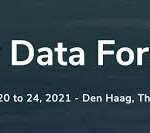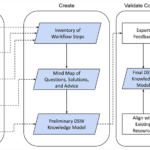

New comprehensive toolkit to support countries after natural disasters
World Bank Group announces comprehensive toolkit to support countries after natural disasters. The World Bank Group today announced a suite of new and expanded actions to help countries respond quickly and effectively to an ever-growing onslaught of crises.
Government of Barbados forms a coalition to develop resilient infrastructure
The Government of Barbados forms a coalition of multilateral banks and organizations to develop resilient infrastructure and to drive new social and nature capital investments, building on its Resilience and Sustainability Facility at the IMF
Integrating gender and social inclusion in nature-based solutions: a way forward
Vietnam, with its vast coastline of over 3,000 kilometres, is not only home to prosperous fisheries and socio-economic activities but also bears the brunt of rising sea levels, flooding, and storms. Women and vulnerable groups are especially susceptible to the negative impacts of disasters and face a continuing income gap. To address both challenges, the World Bank is working with the Vietnamese government to implement a project to enhance coastal resilience through nature-based solutions (NBS).
‘Drought is on the verge of becoming the next pandemic’
Little old England manages to encompass many global water problems – scarcity, over abstraction, pollution, underinvestment, government and regulatory failings, environmental degradation and corporate misconduct – all within the confines of one small country in the far west of Europe.
Embracing nature’s resilience: Combating desertification in Central Asia with Nature-Based Solutions
Drylands in Central Asia are among the most rapidly degrading and climate-vulnerable areas worldwide. Desertification caused by climate change and human activities has led to land degradation, soil erosion, and loss of vegetation and biodiversity that is costing Central Asia over 5% of regional GDP.
Seven ways to reform the global financial system for climate and sustainable development goals
Next week’s high-level summit in Paris for a New Global Financing Pact seeks to find ways to reform the global financial system to simultaneously address climate change, biodiversity and sustainable development challenges worldwide. This is an opportunity to act on the Bridgetown Initiative, which calls for a remake of the global financial architecture to tackle these issues. What changes are needed? A team of SEI researchers offers seven ideas.
Common threads: what we can learn from analyzing multiple disasters
Examining why some natural hazards develop into disasters can reveal resilience-building opportunities with the potential to protect communities from future catastrophe. Just as important as disaster analysis itself is the process of identifying key learnings that can be applied in other contexts, in the pursuit of a more resilient world.
Hope for the best, prepare for the worst: South Asia’s fiscal needs in the era of climate shocks
South Asian countries have come out of the pandemic with eroded fiscal space and record public debt. Global financial tightening is putting additional pressure on government budgets. At the same time, the region’s vulnerability to climate risks—with more than 800 million people currently living in communities that are projected to become climate hotspots—demands substantial resources to prepare for future disasters and build climate resilience.

Struggling with the rain: Weather variability and food insecurity forecasting in Mauritania
This paper incorporates microeconomic estimates of the effect of the rainy season quality on food consumption into a catastrophe risk modeling approach to develop a novel framework for early forecasting of food insecurity at sub-national levels. Weather-related shocks and climate variability contribute to hampering progress toward poverty reduction in Sub-Saharan Africa.
Building resilience through livelihoods and economic recovery
This guidance note presents UNDP’s updated approach to livelihoods and economic recovery programming in Fragile and Post-Crisis/Transition Settings (FACTS). Over the years, UNDP has contributed to strengthening the livelihoods of millions of people affected by conflict and natural disasters, as well as catalyze structural transformation towards more inclusive and greener economies.
CREWS 2022 Annual Report
The CREWS 2022 Annual Report maps and illustrates how the Climate Risk Early Warning System (CREWS) initiative is making the world safer with early warning. It captures progress against key programme indicators since the initiative’s first projects.
Climate Finance Shadow Report 2023: Assessing the delivery of the $100 billion commitment
This Briefing Paper notes that in 2009, high-income countries committed in the Copenhagen Accords to mobilize US$100 billion a year by 2020 in climate finance for low- and middle-income countries. This year’s report finds that high-income countries have not only failed to deliver on their commitment, but also – as in previous years – generous accounting practices have allowed them to overstate the level of support they have actually provided.

Caribbean regional workshop on integrated disaster risk reduction and climate change adaptation planning
The workshop seeks to enhance the capacities of Caribbean countries in developing and implementing integrated plans, and to support regional efforts in streamlining climate change adaptation (CCA) and disaster risk reduction (DRR) measures in light of past and projected climate change impacts.
Eighth session of the Committee on Disaster Risk Reduction
The eighth session of the Committee on Disaster Risk Reduction will be held from 25 to 27 July 2023 As a subsidiary body of the Economic and Social Commission for Asia and the Pacific, the Committee on Disaster Risk Reduction is the intergovernmental legislative forum on disaster risk reduction.
HLPF Side Event: Infrastructure Resilience – safeguarding gains in sustainable development
The 2023 High-Level Political Forum (HLPF) on Sustainable Development will be held on 10-19 July 2022 under the theme of “Accelerating the recovery from the coronavirus disease (COVID-19) and the full implementation of the 2030 Agenda for Sustainable Development at all levels”.
2023 RISK Award Online Ceremony “Climate resilience and early warning”
Disaster risk reduction saves lives, protects people from injury and prevents damage. The RISK Award contributes to this goal by recognizing the efforts of practitioners globally in making communities safer and more resilient.














